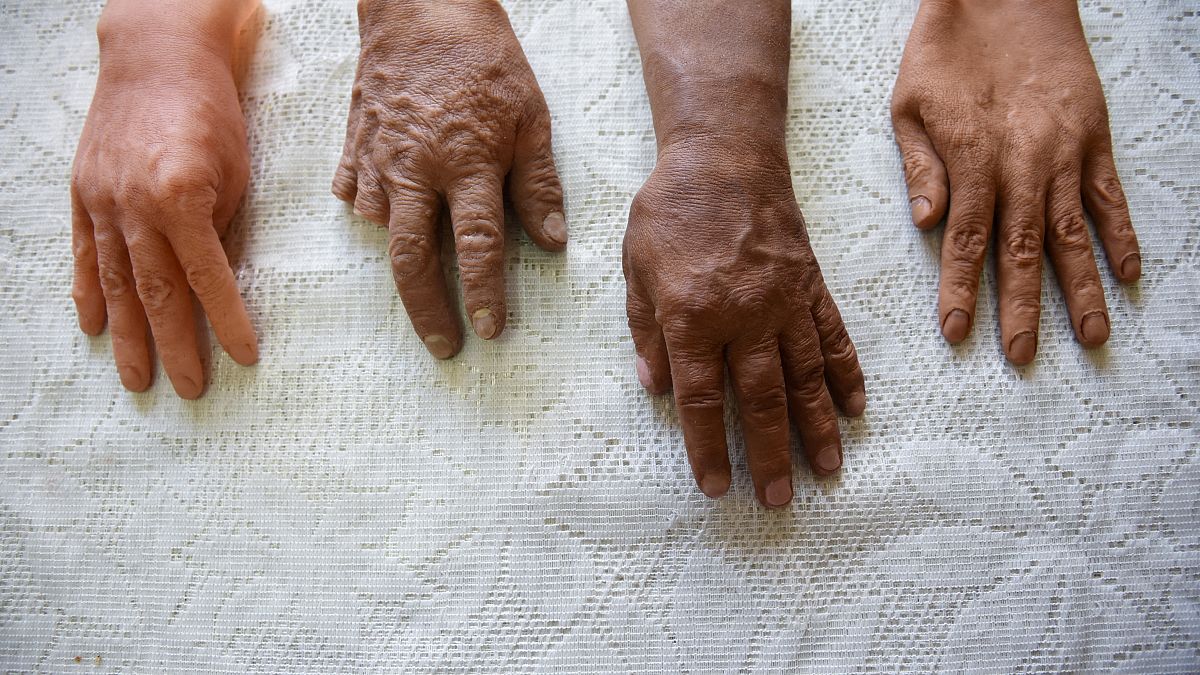This prosthetics maker designs hyperrealistic limbs that emulate the patient's age and skin tone as closely as possible - adding in wrinkles, nail pigmentation and even tiny hairs.
In August 2017, Bolivian metal worker Richard Vargas lost his hands in a dynamite explosion, a tragically common occurrence in Bolivia where the explosive substance is widely used.
“I was in intensive care for 15 days. When I woke up, I no longer had my hands," said Vargas.
Not only did Vargas lose his hands but he also lost his job at an aluminum workshop.
Vargas is not the only amputee who has grappled with the challenges of unemployment and societal discrimination.
This prompted Bolivian electro-mechanical engineer Antonio Riveras to found Creotec, which makes custom-made prosthetics
"We saw people with disabilities and amputations feel secluded, isolated. They don't leave their homes. Many times they quit school, leave college, they lose their job,” said Riveros.
“30% of them have suicidal thoughts, and most of them are depressed. So we figured out there is a mental issue rather than a physical one," he added.
Riveros noticed prosthetics that matched his darker skin were typically not found on the market. He learned the technique needed for prosthetics manufacturing and is now working with plastic artists and anaplastologists.
The hyperrealistic prostheses emulate the patient's age and skin tone as closely as possible - adding in wrinkles, nail pigmentation and even tiny hairs.
“We are making these prosthetics with lots of realism,” said Riveros.
"People with disabilities in Latin America are different from people in the United States or Europe where the culture makes them accept an amputation and find a functional prosthesis that allows them to go out,” he said.
“On the contrary in Latin America, in Bolivia, what people want is to hide their amputations," he added.
The start-up primarily caters to low-income Bolivians with prices as low as €282.
In Bolivia, prosthetic limbs are primarily imported from Europe or North America, where they are often designed to replicate white skin and can cost thousands of dollars, the equivalent of more than six years of minimum wage in the South American country.
The hyperrealistic prosthetics allowed Vargas to walk around unnoticed as well as write and enjoy meals with the use of cutlery.
He has now got his old position back in an aluminium workshop and carves tombstones as a second job.
“They have my skin tone, they are more aesthetic, but they also do more. I can write now, I can do more things, I can feed myself, hold a spoon, that is the difference," said Vargas.



